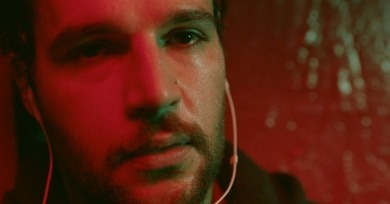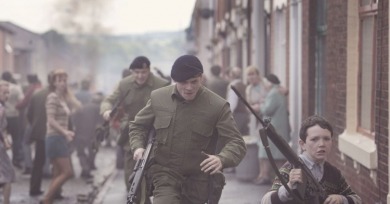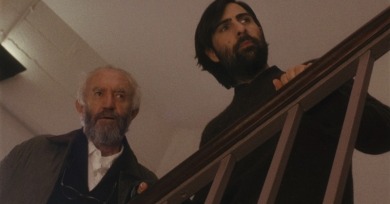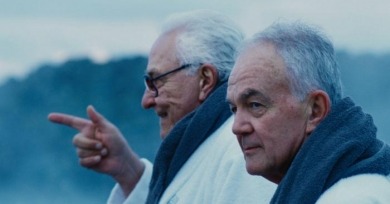Danny King
In most scenes, Mond is aiming for full-on subjectivity—with director of photography Mátyás Erdély’s camera clinging to James for dear life in close-up—so essential backstory details often slide in out of nowhere and take us by surprise.
The camera pummels forward through bombed-out walls and crumbling houses, tracing Hook’s movement, transforming Belfast into a maze—a torn city whose buildings and roads are intricately connected via shattered structures and wreckage-heavy corridors.
Considering that Perry identifies as a hardcore cinephile, his style is surprisingly performance-driven: his work prioritizes dialogue and the close-up. This isn’t to say his movies, with their staunch commitment to celluloid, aren’t beautiful to look at, but that his voice comes through via the accumulation of emotion rather than flourish.
Most of the filmmaking decisions—like the use of two cameras during shooting, allowing the actors to behave organically and spontaneously without having to worry about hitting their marks or being fed lines of dialogue off-camera—are geared primarily toward showcasing the two distinct personalities at the movie’s core.



